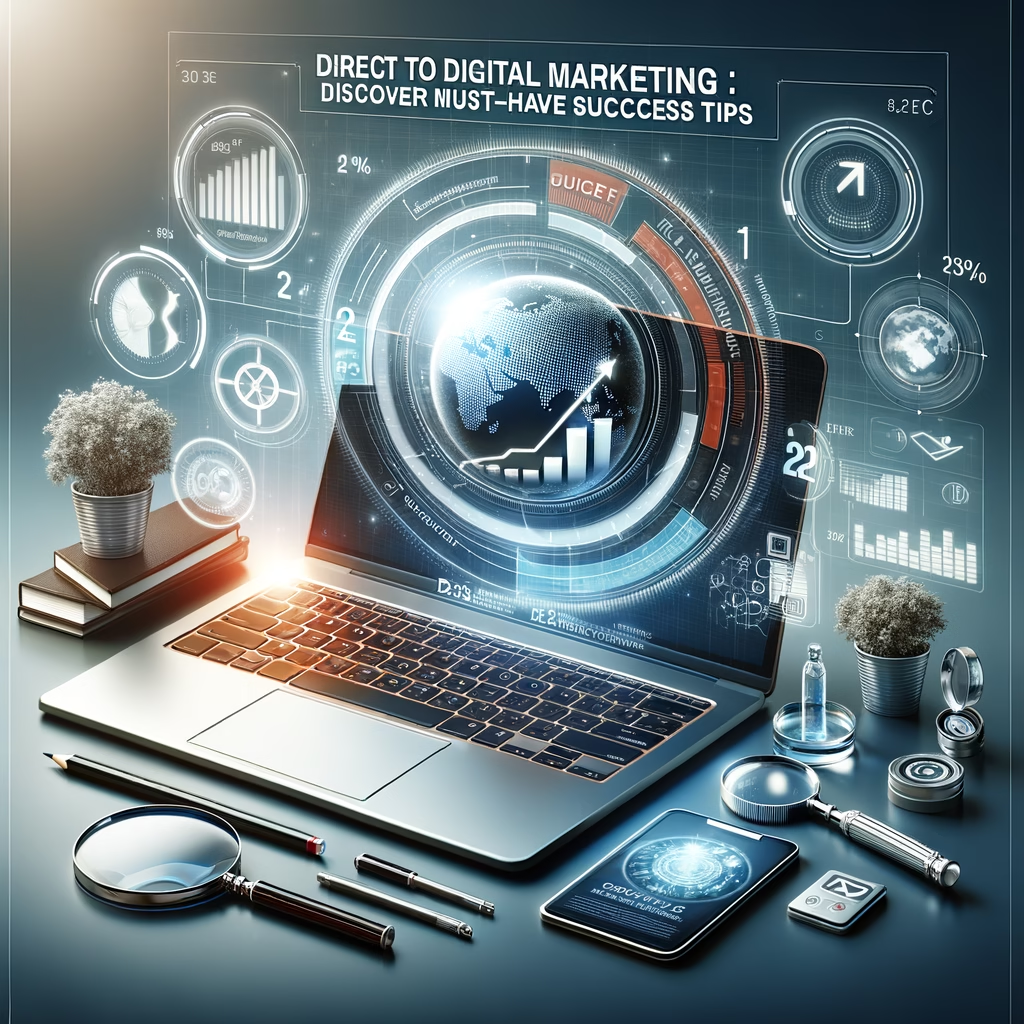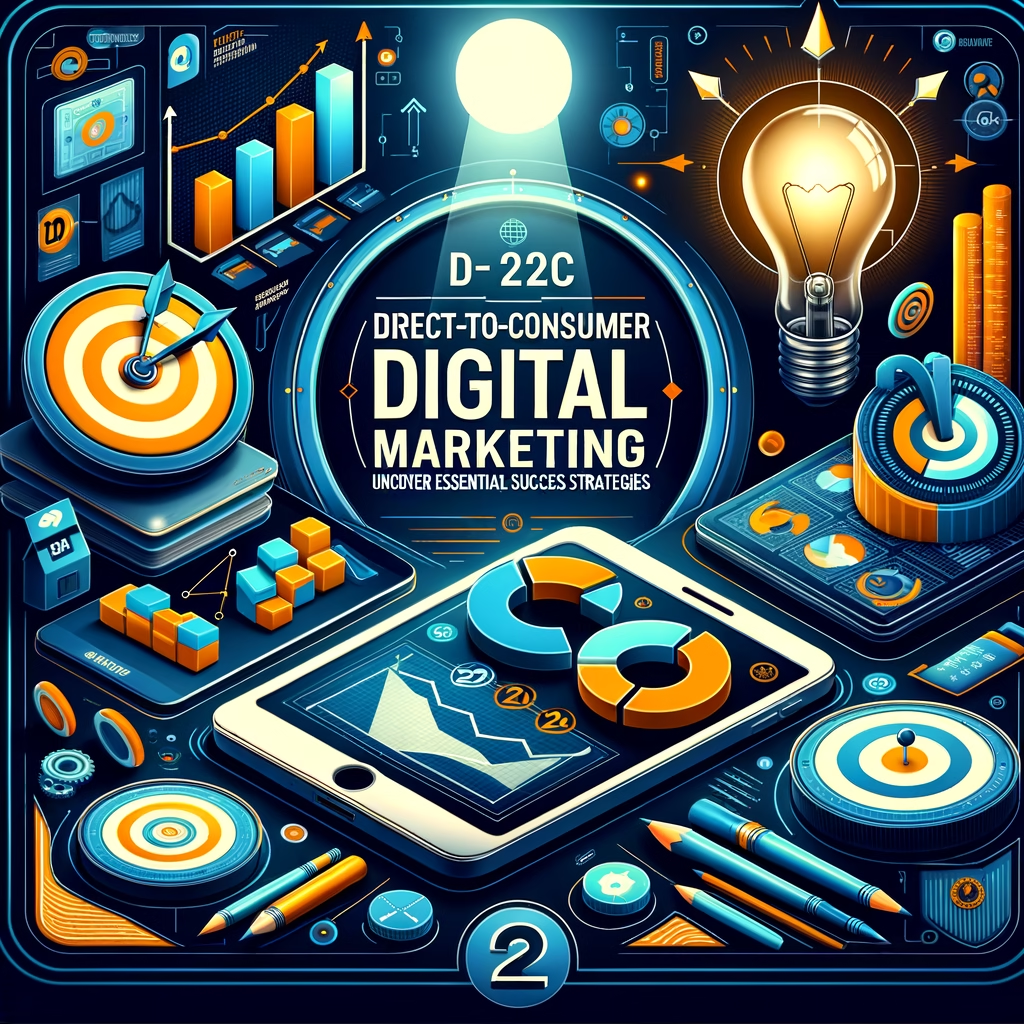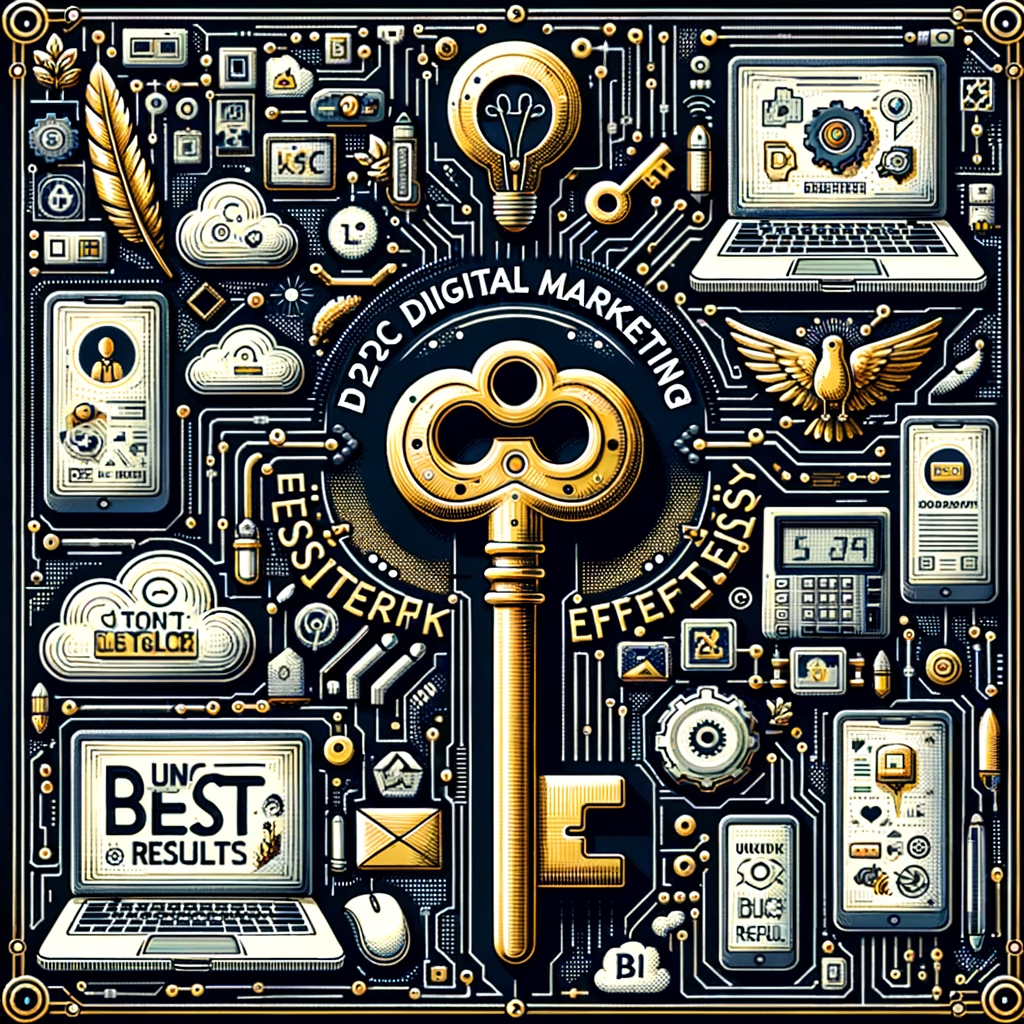- Understanding the D2C Model
- Key Digital Marketing Tools for D2C Brands
- 1. Customer Relationship Management (CRM) Software
- 2. Email Marketing Platforms
- 3. Social Media Management Tools
- E-commerce Platforms: The Digital Storefront
- Features to Look for in E-commerce Platforms:
- Advanced Analytics and Tracking Tools
- Benefits of Using Analytics Tools:
- Leveraging AI and Automation in D2C Marketing
- AI-Driven Tools to Consider:
- Integrating Influencer Marketing Tools
- Features of Influencer Marketing Tools:
- Building a Seamless Omnichannel Experience
- Strategies for Success:
- Conclusion: The Future of D2C Digital Marketing
D2C Digital Marketing: Discover Must-Have Success Tips through Innovative Tools
D2C digital marketing has transformed the way businesses sell directly to consumers by leveraging modern tools to enhance engagement and optimize processes. As the landscape becomes more dynamic, understanding which tools to incorporate in your strategy can be pivotal for success. This article will explore essential tools that every direct-to-consumer brand should consider integrating into their marketing arsenal.
Understanding the D2C Model
The direct-to-consumer model cuts out the traditional intermediaries, allowing brands to connect directly with their customers. This not only streamlines the buying process but provides valuable data that can be used to tailor marketing efforts. As competition intensifies, leveraging innovative tools has become crucial to maintaining a competitive edge.
Key Digital Marketing Tools for D2C Brands
1. Customer Relationship Management (CRM) Software
A robust CRM system is the backbone of any successful D2C strategy. By managing interactions and relationships with potential and existing customers, CRM software helps brands personalize experiences and increase customer loyalty.
Benefits of CRM in D2C:
– Enhanced Customer Insights: Gain detailed knowledge of customer purchasing patterns.
– Personalized Marketing: Tailor your marketing efforts based on individual customer preferences and behaviors.
– Improved Customer Retention: Ensure that you maintain a strong relationship with your customers through targeted communication.
2. Email Marketing Platforms
Email marketing remains one of the most effective channels for D2C brands, offering a direct line of communication with consumers.
Why Email Marketing is Essential:
– Direct Engagement: Reach customers directly in their inbox with personalized messages.
– Automated Campaigns: Set up automated workflows to nurture leads and engage existing customers.
– Analytics: Track open rates, conversions, and customer interactions for continuous improvement.
3. Social Media Management Tools
Social media’s role in D2C digital marketing cannot be overstated. Managing multiple platforms can be a daunting task without the right tools.
Key Features of Social Media Management Tools:
– Content Scheduling: Plan and automate posts for optimized timing.
– Analytics: Obtain insights into engagement metrics and audience demographics.
– Community Management: Respond to comments and messages effectively to build community trust.
E-commerce Platforms: The Digital Storefront
For D2C brands, a robust e-commerce platform acts as the digital storefront, essential for facilitating transactions and providing a seamless customer experience.
Features to Look for in E-commerce Platforms:
– User-friendly Interface: Ensure ease of navigation and checkout for consumers.
– Mobile Optimization: With a significant portion of online shopping occurring on mobile devices, mobile optimization is imperative.
– Integration Capabilities: Seamlessly connect with other tools such as payment gateways, inventory management systems, and marketing tools.
Advanced Analytics and Tracking Tools
To truly capitalize on the potential of D2C digital marketing, understanding your data is key. Advanced analytics tools help in making informed decisions that drive growth.
Benefits of Using Analytics Tools:
– Consumer Behavior Insights: Gain a deep understanding of how consumers interact with your brand.
– Performance Tracking: Monitor campaign performance across various channels to optimize strategies.
– Predictive Analytics: Utilize AI to forecast trends and implement proactive measures.
Leveraging AI and Automation in D2C Marketing
Artificial intelligence and automation have revolutionized the way D2C brands operate, offering efficiencies that were previously unimaginable.
AI-Driven Tools to Consider:
– Chatbots: Provide instant customer service and support, enhancing the user experience.
– Personalization Engines: Deliver customized content and product recommendations.
– Automated Advertising: Employ programmatic advertising to reach targeted audiences effectively.
Integrating Influencer Marketing Tools
Influencer collaborations can amplify a brand’s reach and credibility. With the rising influence of social media, the right tools can help streamline these campaigns.
Features of Influencer Marketing Tools:
– Influencer Discovery: Identify and connect with influencers who align with your brand values.
– Campaign Management: Track and manage influencer collaborations from start to finish.
– ROI Measurement: Measure the impact of influencer partnerships on your brand’s performance.
Building a Seamless Omnichannel Experience
Creating a seamless omnichannel experience is at the core of modern D2C digital marketing. It ensures that customers receive a consistent brand experience regardless of the channel they choose.
Strategies for Success:
– Consistent Messaging: Maintain uniform branding across all platforms and communication channels.
– Integrated Systems: Ensure that your systems communicate effectively for unified data and customer insights.
– Customer-Centric Approach: Focus on the customer journey and create touchpoints that enhance the overall experience.
Conclusion: The Future of D2C Digital Marketing
The journey of D2C digital marketing is marked by innovation and adaptation. As brands strive to connect more closely with consumers, leveraging modern tools becomes essential. By integrating these tools effectively, brands can not only meet consumer expectations but exceed them, thus paving the way for long-term success. As technology evolves, staying informed and adaptable will ensure that your brand remains at the forefront of the direct-to-consumer revolution.




